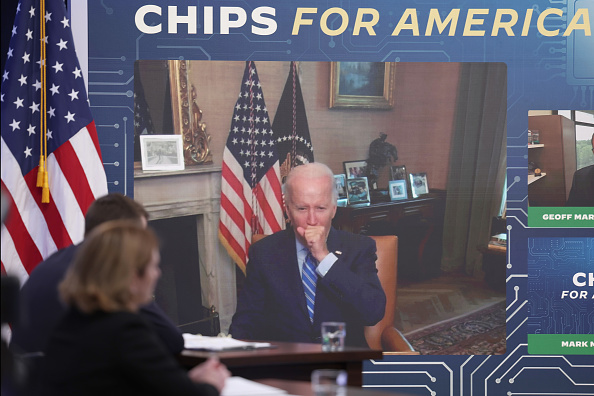In the previous post in this series, I described Friedman’s definition of naive realism, along with some of the problems with this worldview when applied to technocratic policymaking. But what are the consequences of naive realism?
One consequence is political polarization. If all four types of technocratic knowledge can be intuited as self-evident truths, there can be no scope for reasonable disagreement. Nonetheless, disagreement undeniably persists, therefore disagreement is proof the other party is unreasonable, if not outright malicious: “If we favor what is self-evidently desirable, then our opponents necessarily favor what is self-evidently undesirable.” This conviction is…
…the product not of a dispassionate investigation of the opponents’ motives, but of the naive political realist’s incomprehension of the very possibility of sincere disagreement in the case at hand. Since the naive realist cannot fathom real disagreement – given the self-evidence (to her) of the truths with which her opponents disagree – she cynically dismisses their apparent disagreement with her as “fake.” This cynicism may pass for a clear-eyed rejection of sentimentalism. But in fact, it is only as realistic as the underlying assumption: that the truth is self-evident.
As mentioned in the first post in this series, by Friedman’s definition, a “citizen-technocrat” is an advocate of technocratic policies who believes that technocratic knowledge is obvious. Thus, citizen-technocrats can include politicians and policymakers as well as voters – the defining characteristic of the citizen-technocrat is their belief in the level of epistemic complexity. This assumption has a few key effects on citizen-technocrats. It creates a “a ‘bias’ for technocratic action…this bias—whether or not it is justified—would be entirely rational given the assumption of self-evidence.” This assumption also leads people to adopt what Friedman calls a “simple-society ontology.” This, too, reinforces the belief that policy disagreement and unsolved social problems can only be the result of bad faith and bad actors:
First, a simple-society ontology implies that political actors of goodwill, who genuinely intend to solve social problems, will be able to do so without counterproductive consequences (which are not contemplated), such that good technocratic outcomes will follow from good intentions. Second, if social problems nonetheless persist, an explanation suggests itself: namely, political actors with bad intentions, that is, people who do not want the problems solved; political actors who are selfish, not sociotropic.
Political survey data shows this line of thinking playing out:
The primary basis for most respondents’ endorsement of a candidate or party was the perception that the candidate or party intended to benefit people who deserved to be helped: a good intention. And the primary basis for most respondents’ antipathy to the other candidate or party was the perception that that party or candidate intended to benefit those who did not deserve to be helped: a bad intention.
Year after year, policymakers announce new initiatives and programs to tackle all kinds of social problems. Wars on drugs, crime, and terrorism, thousands upon thousands of pages of laws and regulations to fix the healthcare system, poverty alleviation, support for the homeless – if you can think of social problem, odds are the government has passed tens of thousands of pages of legislation and spent hundreds of billions or even trillions of dollars trying to alleviate it. Still, these problems persist – and many of them are worse than before the initial attempts to fix them. To some, this might suggest that effectively solving such problems is something the government simply doesn’t know how to do. But to the naïve realist, the idea that government isn’t well suited to solve social problems is never considered. It’s not that the government can’t fix some problem – which must mean the government simply won’t fix the problem:
Conversely, as Hibbing and Theiss-Morse show with focus-group and survey evidence, disillusionment and anger can follow from the perception that government is failing to act. The authors’ angry, disillusioned respondents did not allow that inaction might be caused by arguments about which actions will succeed or what their effects might be, let alone that such arguments might be justified. On the contrary: they seemed to agree that, as one put it, all it would take to solve the extant problems is for the two parties’ leaders to get together and say to each other, “There’s a problem. We won’t leave this room until it’s fixed.”…The respondents’ chronic dissatisfaction with elected officials was due, it would seem, to the conviction that the officials had bad intentions, not inadequate knowledge, such that they deliberately, willfully declined to solve problems they knew how to solve.
This belief among citizen-technocratic voters is reinforced by the rhetoric of citizen-technocratic politicians. During a presidential nomination debate, Tim Ryan objected to Bernie Sanders that Sanders couldn’t know that Medicare for All would have the outcomes Sanders was describing. Sanders’ immensely popular response was “I do know it. I wrote the damn bill!” To Bernie Sanders, all that’s required to know desirable results will be achieved is for the relevant legislation to be written by Bernie Sanders. During the same campaign, Elizabeth Warren’s theme was to assure voters that for any given worry – health care, student loan debt, wages, trade – she had a plan for it. To the naive realist, the simple fact that Senator Warren had plans for all these issues ensured that the desired outcomes would be reached. The fact that unsatisfactory outcomes currently exist in these areas, despite all of them having been subject to immense government planning for decades, only showed that previous planners were not as well intentioned (or perhaps just not as intelligent) as Elizabeth Warren. There is no deeper lesson to be learned, in the mind of the naive realist.
Friedman suggests that the combined forces of naive realism, simple-society ontology, and the bias for technocratic action also explains Donald Trump’s appeal to many voters:
Trump’s disinclination to ever back down in any controversy may have demonstrated to some voters, in deed – far more effectively than Clinton could demonstrate about herself, in words – that he would not let anyone get in the way of his determination to act. His continuous attack mode may likewise have signaled a propensity for action; so, too, his disparagement of Clinton for lacking “stamina,” of Mitt Romney for having “disappeared” from the battle for the presidency at the end of the 2012 campaign, and of Jeb Bush for his “low energy.”
To critical observers of Trump, his comical ignorance of public policy (and so much else) was a clear disqualification for the presidency. But citizen-technocrats who tacitly adhere to a naive technocratic worldview would have no reason to recognize that an ignorant politician might lack knowledge not only of civics trivia but of policy effects—inasmuch as they assume that such effects are self-evident to those who sit down and think about them. Hibbing and Theiss-Morse’s respondents, who made that assumption, logically concluded that the reason social problems persist is that elected officials have “the ability but not the will to take care of the nation’s problems.” The ability was, for them, the easy part, or so it seems; the hard part was the will. For such citizen-technocrats, Trump’s bullheaded willfulness alone may have signaled his qualification for the office of citizen-technocrat in chief.
Why is it that what seems obvious is so frequently unreliable? Can citizen gain knowledge in a way which overcomes the problems of naive realism and makes a workable technocracy likely, or at least possible? That will be the topic of the next post.
Kevin Corcoran is a Marine Corps veteran and a consultant in healthcare economics and analytics and holds a Bachelor of Science in Economics from George Mason University.
















